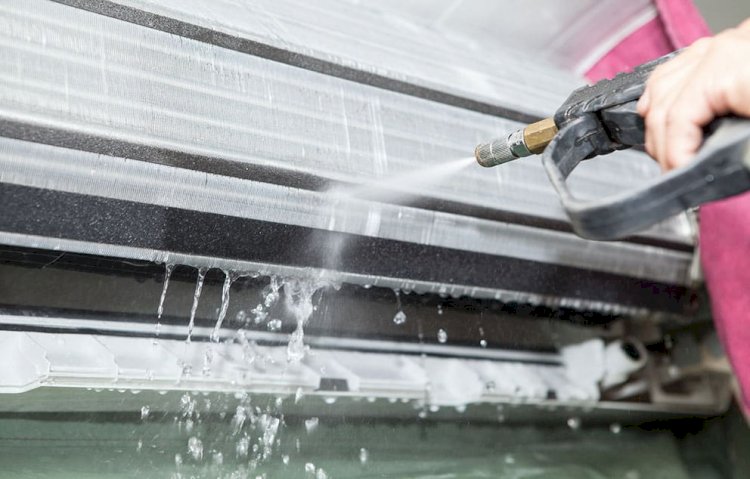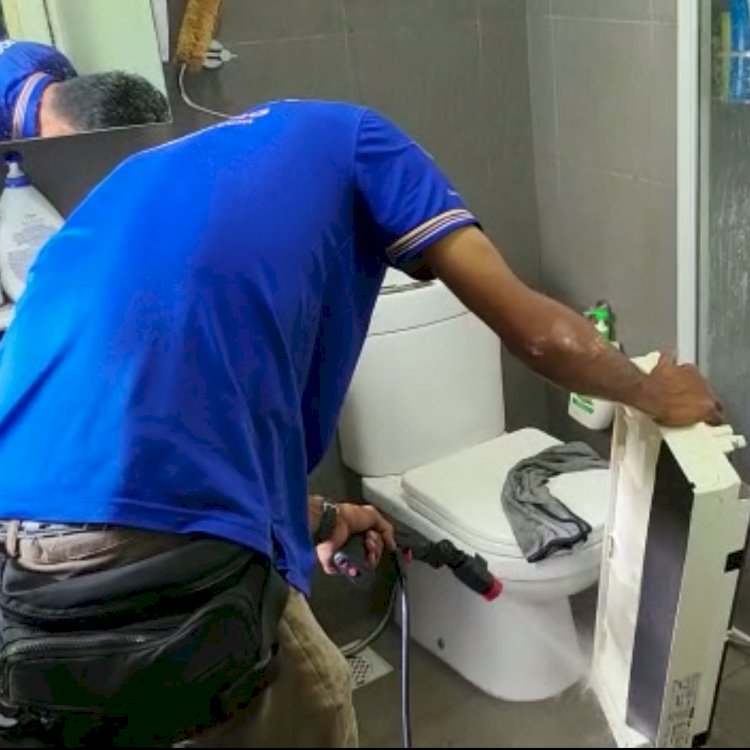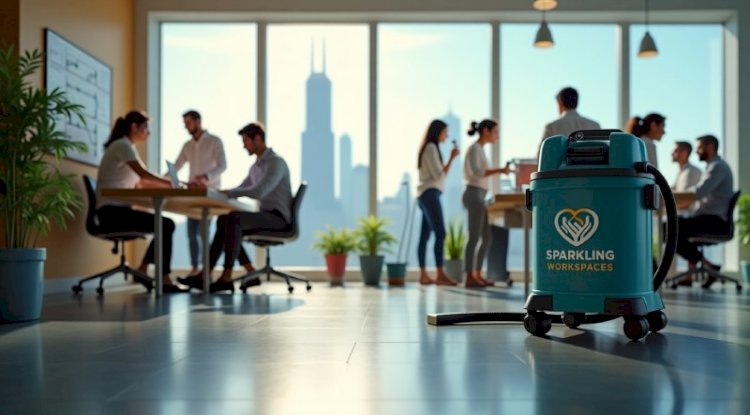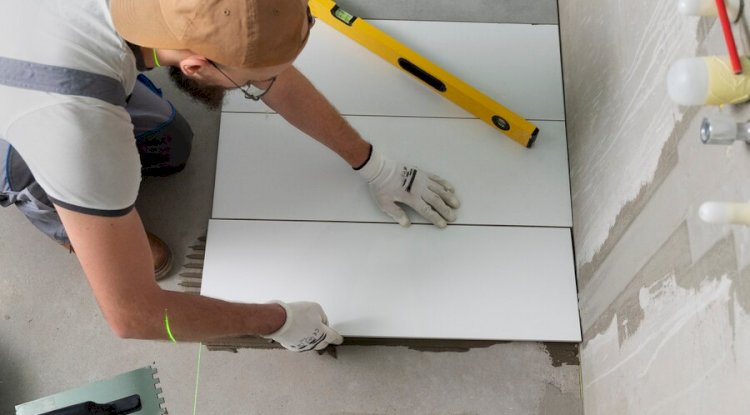Got a Mouldy Air Conditioner? Here's How to Safely Fix It
Having clean air is really important for staying healthy. We usually pay attention to the food we eat and the water we drink, but we might forget about the air we breathe.
Having clean air is really important for staying healthy. We usually pay attention to the food we eat and the water we drink, but we might forget about the air we breathe. It's concerning to think that the air in our homes or businesses in Singapore could be polluted because of moldy air conditioners. When you use your air conditioner, it can release mold spores and bacteria into the air, which can be really bad for your respiratory health. If you think your air conditioner has mold, it's really important to deal with the problem quickly and safely. Here's what you need to know about aircon chemical wash in Singapore and how it can help.
Why Mould Thrives in Singapore's Air Conditioners
Singapore's hot and humid climate creates the perfect breeding ground for mold. Air conditioners provide an environment conducive to mold and mildew growth. The cooling process of an air conditioner involves drawing in outside air, which often contains airborne bacteria and mold spores. When the air conditioner is not in use, the interior warms up, leading to moisture and condensation that facilitate mold growth.
The Dangers of Mold in Your Air Conditioner
Not all molds are harmless. Mold is a microscopic fungus, and while some varieties have beneficial uses, the mold typically found in air conditioning units can be harmful. Mold spores are the means through which mold reproduces, and when a spore finds a suitable environment within your air conditioner, it will grow and release more spores into the air.
These tiny particles called spores have the ability to pollute your living space by landing on different objects and being breathed in or swallowed. People who have allergies or respiratory problems such as asthma are especially at risk of experiencing health issues due to exposure to mold.
Furthermore, specific types of mold can generate harmful substances called mycotoxins, which can cause serious illnesses like pneumonia. This is particularly concerning for children, older adults, and individuals with weakened immune systems.
Additional Issues Caused by a Mouldy Air Conditioner
Apart from the health implications, mold can cause significant problems that affect the efficiency and functionality of your air conditioner. Over time, mold buildup can lead to blockages in the air conditioning drains, resulting in system breakdowns when you need cooling the most.
Identifying Mold in Your Air Conditioner
· Initially, you may not see visible signs of mould growth.
· The first indication might be a musty or unpleasant odor when your air conditioner is running.
· If you've ruled out other potential sources of the smell, it's time to inspect your air conditioner.
· Look for black or grey circular marks, indicating mould deposits, on the interior surfaces.
· In severe cases, mould might spread to walls and ceilings.
Confirming the Presence of Mold
To check if there is mold in your air conditioner, you can look inside the air conditioning ducts, the unit itself, the coils, drain, and fan to see if there are any visible signs of mold. If you want to be sure, you can arrange for professional testing. They will count the spores and analyze samples in a laboratory. If you're looking for services for an aircon chemical wash in Singapore or aircon gas top up in Singapore, we can assist you with that as well.
Steps to Safely Fix a Mouldy Air Conditioner
If you decide to tackle the issue yourself, take the necessary precautions to protect yourself from mold spores. Wear gloves and a face shield or a filter mask specifically designed to safeguard against mold spores. Proper cleaning of the air conditioner involves dislodging the mold spores.
Here's a step-by-step guide to cleaning your air conditioner:
1. Consult the owner's manual to dismantle the unit properly.
2. Thoroughly vacuum the interior of the unit, ensuring the removal of loose or airborne mold spores.
3. Wash the filters under running water.
4. Use warm, soapy water to wipe down all surfaces of the air conditioner, allowing them to dry completely.
5. Apply a commercial air conditioner cleaner and a mold inhibitor using a clean, damp cloth. Natural products such as tea tree oil, oil of cloves, vinegar and water, or methylated spirits and water can also be effective mold inhibitors.
6. Dispose of any mold-contaminated cloths in an airtight plastic bag.
While there are purpose-designed air conditioning cleaners available, make sure to choose a product specifically formulated for air conditioners. Using common anti-mold sprays or bleach may pose risks to your well-being and could potentially harm your air conditioning system.
Preventing Mold in Your Air Conditioner
When it comes to mold in your air conditioner, the most important thing is prevention. Regular cleaning and maintenance can significantly reduce the likelihood of mold growth. Clean and properly fit the filters to prevent the entry of mold spores.
Schedule annual air conditioning maintenance, including cleaning the air conditioning ducts and disinfecting evaporation trays. Focus on these tasks after the winter months when humidity and temperatures start to rise, ensuring your air conditioner is in optimal condition for usage.
Knowing When to Seek Professional Help
Finding all the possible places where mold can hide in an air conditioner is not easy. Some spots are hard to reach and can be dangerous if not handled properly, like the risk of getting electrocuted or injured. That's where Nature Cool, a professional air conditioning company, comes in. Their technicians have the expertise, tools, and equipment needed to carefully inspect your air conditioner and effectively eliminate any mold. If you think there might be a mold issue or if you need help, it's a good idea to get in touch with a licensed professional like Nature Cool.
Conclusion
If your air conditioner in Singapore has mold, it can be dangerous for your health and make your cooling system less effective. It's crucial to deal with this problem quickly and safely. To reduce the chances of mold growth, it's important to regularly maintain and clean your air conditioner. You can also take preventive measures. If you're unsure about handling the issue on your own, it's best to seek help from a professional who can inspect it thoroughly and provide the right solution. By following these steps, you can keep your air conditioning system healthy and working well, ensuring clean air for you and your family. Additionally, if you need an aircon chemical wash in Singapore, a professional can assist you with that too.
Share
What's Your Reaction?
 Like
0
Like
0
 Dislike
0
Dislike
0
 Love
0
Love
0
 Funny
0
Funny
0
 Angry
0
Angry
0
 Sad
0
Sad
0
 Wow
0
Wow
0


















